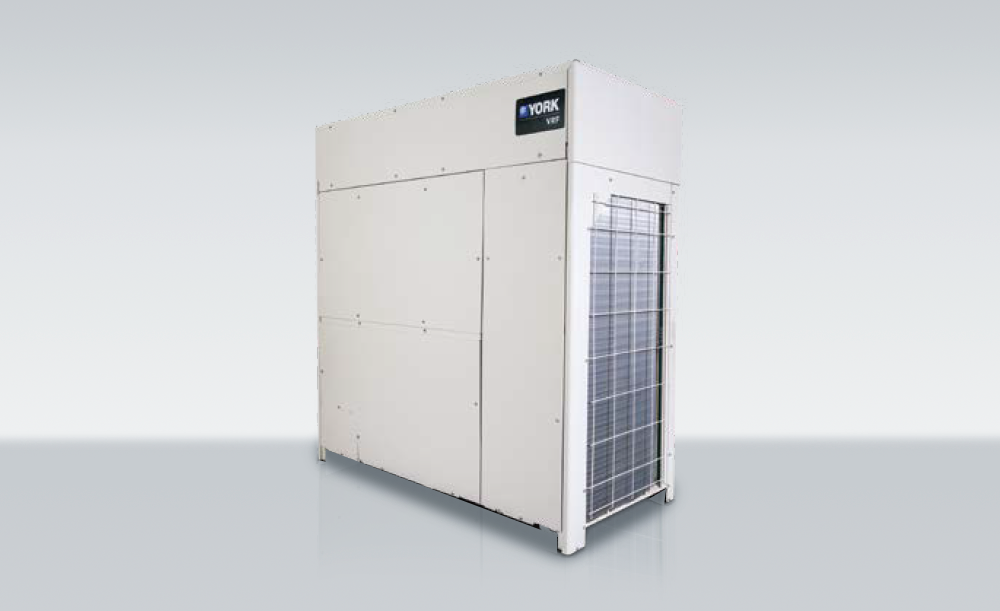- YORK®
- Commercial Equipment
- Ductless and VRF Systems
- Variable Refrigerant Flow Systems
Variable Refrigerant Flow (VRF) Systems
The smart choice for new construction and retrofit projects
VRF HVAC Solutions
Like duct-free mini split systems, VRF systems use refrigerant for heating and cooling. Unlike conventional chillers, you have more flexibility because you can have varying degrees of cooling in specific areas.

Features and Benefits
When you need a precise solution, YORK® VRF HVAC equipment delivers. Choose from a wide range of indoor and outdoor non-ducted and ductless HVAC units and accessories that have unsurpassed efficiency, flexible installation and more design options.
MORE EFFICIENT
Balance comfort and efficiency with non-ducted and ductless heating and cooling options for each zone. Our VRF HVAC systems deliver up to 30% energy savings compared to conventional systems.
SAVE ON INSTALLATION
YORK®'s extensive VRF HVAC solutions deliver extended operating ranges and space-saving solutions that reduce installation costs.
MORE CONTROL
System controls can be integrated into BAS or network programs using hard-wired or Wi-Fi installation to give you full-system and zone control.
YORK® VRF Systems: Measurably More Efficient
YORK® VRF HVAC equipment offers the power to design the most economical system — saving up to 39% more energy compared to traditional HVAC systems.
Products
Resources & Education
Smarter Buildings
Learn how the Verasys plug-and-play controls system integrates heating, ventilation, air-conditioning and refrigeration equipment and controls without any special programming.
Ducted Systems Fan Power Requirements
Standard 90.1-2016 of the American Society of Heating, Refrigeration, and Air Conditioning Engineers (ASHRAE) outlines the requirements for fan power in HVAC systems.
Find the Support You Need to Get the Job Done
Contact Us
Hide
Show product comparison












